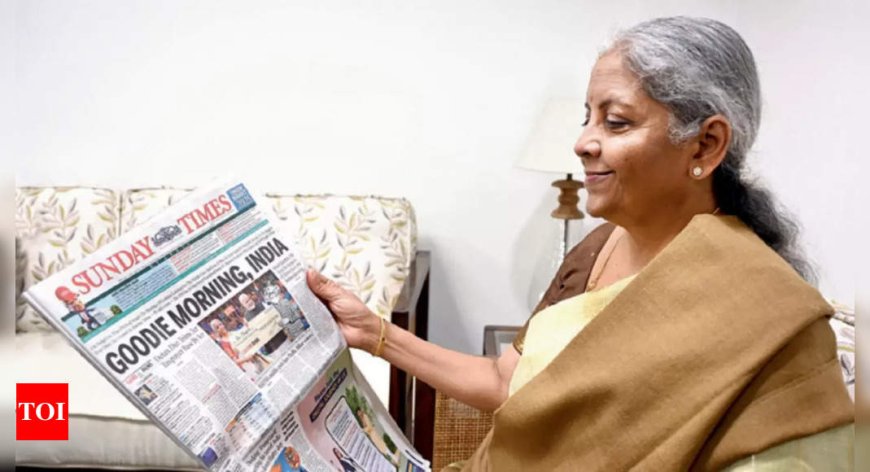We're trying to make I-T Act relevant to 21st century: Finance minister Nirmala Sitharaman
Finance Minister Nirmala Sitharaman announced that the new income tax bill, set to be presented in Parliament, will modernize the IT Act for the 21st century. The aim is to make the tax system simpler for taxpayers to navigate independently while widening the tax base.

We're Trying to Make I-T Act Relevant to 21st Century: Finance Minister Nirmala Sitharaman
In a recent statement, Finance Minister Nirmala Sitharaman emphasized the need to modernize the Income Tax (I-T) Act to make it relevant for the 21st century. This move is vital as the world evolves rapidly with technological advancements and changing economic landscapes. The current framework, established in a different era, requires significant reforms to keep pace with contemporary financial practices.
The Importance of Modernizing the I-T Act
The I-T Act, originally framed decades ago, is struggling to address the modern complexities of taxation in India. With the rise of digital currencies, international trade, and e-commerce, the Finance Ministry is keen on introducing changes that will not only streamline taxation processes but also enhance compliance. Nirmala Sitharaman remarked on the necessity of aligning the Act with international standards, thereby improving India's suitability as a global business hub.
Current Challenges Faced by the I-T Act
One of the major challenges highlighted by the Finance Minister is the adaptation of tax laws to new business models that have emerged due to digitalization. The current framework lacks clarity and guidance on various aspects such as online transactions, gig economy taxation, and the taxation of digital assets. These gaps create confusion among taxpayers and make compliance a daunting process.
Proposed Changes and Reforms
Nirmala Sitharaman has indicated that the government will be exploring comprehensive changes to the act, including simplification of tax structures, introduction of technology-driven assessments, and enhanced taxpayer services. The objective is to create a more transparent and efficient tax ecosystem that serves both the government and the taxpayers effectively.
Conclusion
The endeavor to revamp the I-T Act is a crucial step in adapting India's taxation system for a modern economy. As Finance Minister Nirmala Sitharaman leads this initiative, stakeholders across various sectors should engage in the conversation to ensure that their concerns and insights shape the future of taxation in India.
Stay informed about this evolving topic and other financial updates. News by dharmyuddh.com Keywords: Nirmala Sitharaman I-T Act modernization, Income Tax reforms India, 21st century tax laws, Finance Minister statement, current tax challenges India, digital economy taxation, tax compliance improvement, technology in tax assessments, e-commerce tax regulations, modern I-T Act changes.







